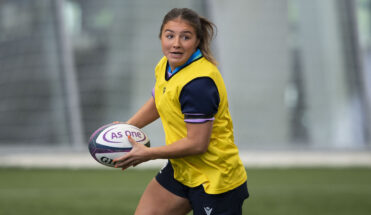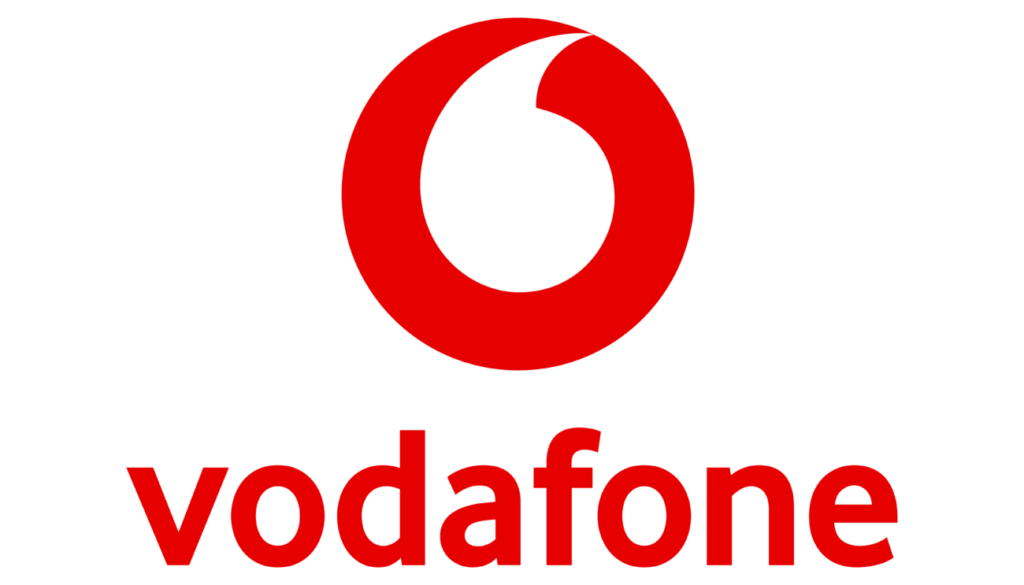Former Scotland captain faces biggest challenge
From 1997 to 2005 Tom Smith was the cornerstone of the Scotland and British & Irish Lions scrum. He won the last ever Five Nations Championship with Scotland in 1999 and tamed the mighty Springboks with the Lions in 1997. Now, he is facing his biggest challenge.
The former Scotland captain, hailed as “the outstanding Scotland player of the professional era”, is battling cancer.
The 48-year-old prop forward, capped 61 times for Scotland between 1997 and 2005, and who made six Test appearances for the British and Irish Lions, was diagnosed with stage four colorectal cancer earlier this autumn.
The cancer started in his colon and has spread to his liver and brain. He has undergone intensive rounds of chemotherapy, aimed at halting the tumours growth, and is undergoing radiotherapy to treat the lesions in his brain.
Dealing with the condition is a huge challenge for Tom but he is well supported by wife Zoe and his three children Angus 18, Amelie 17 and Teddy 9, as well as the wider rugby community, and will do everything he can to win.
Tom, now resident in the south of France, remains resolute.
“I was in my hospital bed and I said to staff: ‘I’m determined to fight this’.”
Tom Smith

Tom has always given his all. From his days at Rannoch school in Perthshire, when he first caught the eye of Jim Telfer playing for Dundee High at Melrose 7s, to bringing the gargantuan Springbok front-row of Os Du Randt, Naka Drotske and Adrian Garvey to heel in 1997, Tom has been utterly unyielding.
Like Mighty Mouse, Ian McLauchlan, had done in a Lions jersey 26 years beforehand in New Zealand in 1971, Tom showed that strength, technique and courage could triumph over sheer size.
When Tom retired from professional rugby at the remarkable age of 37, he was the oldest player in the English Premiership.
His long and distinguished career is even more exceptional because it was achieved in defiance of epilepsy.
These days his cancer symptoms and treatment can leave him “wiped out” and needing rest.
Our visit was a “good day,” where Tom insisted on showing us round his home. Happily, the storms which had battered the south of France that day, complete with a lightning strike on an Air France aircraft, relented and the sun came out. If only that were a metaphor.
Since he was driving back from the Scotland v France Summer Test at BT Murrayfield in August, life for Tom has been anything but ordinary.
The pain he experienced on that journey led, ultimately, to the diagnosis by the medical staff in France. In Tom’s mind the outlook is unknown but not unbeatable.
Diet is a challenge. His is now low-fibre “though I’m still trying to have one Weetabix a day”, and hot drinks are easier than cold drinks. Bananas are good too.
His target is to consume two energy shakes a day and have one regular meal.

Smith, who also played for the Caledonian Reds, Glasgow Caledonians, Brive and Northampton Saints; and coached at Edinburgh Rugby and Lyon among others, marked his 50th cap for Scotland with the decisive try, converted by Chris Paterson, to book a Rugby World Cup quarter-final place with a 22-20 victory over Fiji in Sydney in 2003.
That was one of six tries he scored for his country, epitomising his dynamic, ball-playing ability. He also captained Scotland in the 2001 Autumn Tests.
Now, his family, plus many of the team-mates who shared Smith’s glittering international career, are, as you would expect, rallying round, in order that he can focus his considerable verve on dealing with his condition and the consequences of the treatment, which can prove so utterly exhausting.
Tom speaks of being humbled by the messages and support he has received from the rugby community and is determined to focus all his energies on fighting and beating his condition.
One of Tom’s best friends and a former team-mate from his formative club years at Dundee High School FP, erstwhile Scotland winger Shaun Longstaff, said: “Tom was the toughest team-mate I ever played with.
“He had an incredible work ethic and an ability to dig deeper than anyone I’ve ever come across.
“You can’t sugar-coat what he’s going through and we want to do all we can to support him, Zoe and the family.”
Scotland Head Coach Gregor Townsend, who shared with Smith that historic 1997 Lions Test series victory against South Africa, and on club duty in France playing together for Top 14 side Brive, said: “Tom’s achievement of starting six Lions Tests in a row between that tour of South Africa and then the 2001 tour of Australia is a testament of how highly he was regarded as a player.
“Fearsomely strong and competitive, he went about his business undemonstratively, but also had an outrageous skillset.
“I remember the tight-head prop at Brive giving him a dressing down after one game when he got on the ball quickly after a scrum and broke through the defence.
“He was reminded that the prop’s role in France is to keep pushing in the scrum and not to worry about making ball carries. Of course, Tom ignored his advice and forged his own path, as he has always done.
“He has shown a similar determination that – as someone who suffered from epilepsy – having such a condition did not mean it was a barrier to playing sport.
“The inspiration he has provided as an ambassador for epilepsy charities, in Scotland and Hong Kong, just underlines how Tom has continued to put others before himself.
“For me, Tom is the outstanding Scotland player of the professional era and I’m sure rugby supporters throughout Scotland and the world will rally behind him and his family in these tough times.”
Fundraising campaign

A reunion lunch in Edinburgh next month of Scotland’s 1999 Five Nations Championship winning team – of which Smith was a proud member – will raise funds for Tom.
Longstaff and fellow Scotland winger, Kenny Logan, are also spearheading a major fund-raising dinner in London at the Hurlingham Club on Wednesday 4 March. Places for that event – which will be attended by many of Smith’s peers from the international game, and which will raise funds for Tom, his family and charities close to his own heart – can be bought via www.fireball.co.uk.
Scottish Rugby and its professional teams, Edinburgh Rugby and Glasgow Warriors, both with strong connections to Tom, will use December’s 1872 Cup matches to allow the wider community to show the man who wore the number one jersey his place in their affections.
Tags
Related news
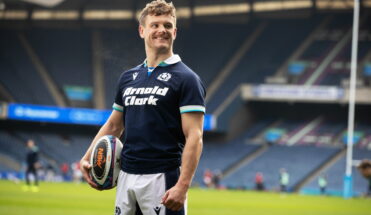
One change for visit of Wales

Hunter to debut as Scotland U20 welcome Wales

Currie, McBeth and Muncaster called up for Wales week

Scottish Rugby partners with Coca-Cola
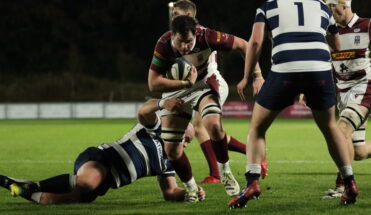
Arnold Clark Men’s Premiership feature match: Musselburgh v Watsonians

Two Scotland U19 fixtures confirmed in April

Glasgow Warriors gear up for Club of Origin double-header
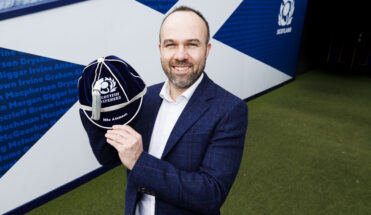
Mike Adamson presented with referee cap

Three changes for Calcutta Cup clash
